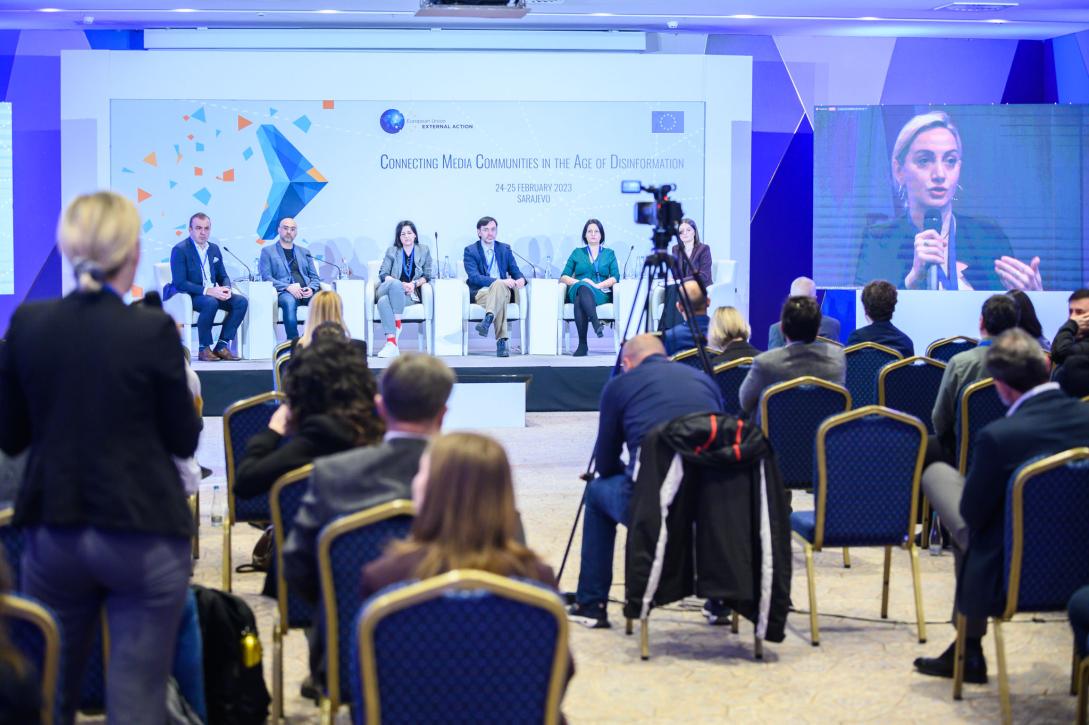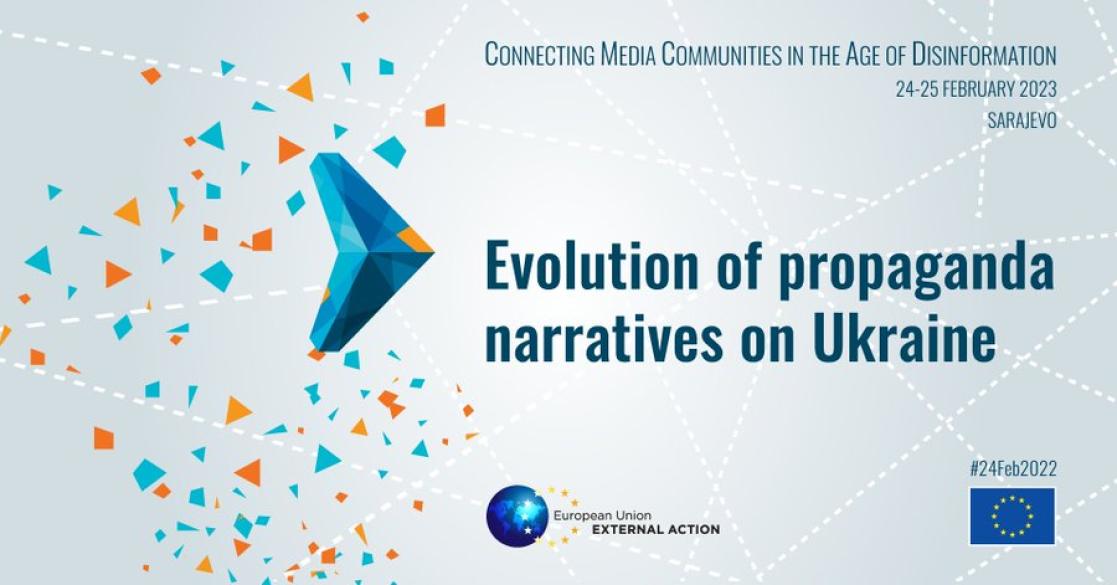Worldwide media communities gathered in Sarajevo to tackle disinformation

With its aggression, Russia launched a war in the battlefield as well as in the infosphere.
The mechanisms for information manipulation that Russia has created years ago have now become a powerful instrument of war, used at the global level,
said at the opening of the conference Johann Sattler, Head of the EU Delegation and EU Special Representative to Bosnia and Herzegovina.
To discuss these issues, Yevhen Fedchenko, Editor in Chief of StopFake (Ukraine), Iyad El-Baghdadi, Director of Jamal Khashoggi Disinformation Monitor, Tijana Cvjetićanin, Editor at Raskrinkavanje (Bosnia and Herzegovina), Marija Vučić, Journalist of KRIK (Serbia), and Sead Turčalo Dean of Faculty of Political Sciences in Sarajevo participated in the panel “Evolution of propaganda narratives on Ukraine”, on 24 February 2023.
Participants exchanged on the need to protect the integrity, freedom and professionalism of journalism as well as of a strong civil society. Both, media and civil society organisations, are crucial elements at peace and even more at war times, when information manipulation spreads.
We cannot fight disinformation only in Ukraine. It is a huge global problem. We really need to internationalise our effort to fight disinformation together,
said Yevhen Fedchenko, quoting Ukraine’s collaboration with other fact-checking networks, such as European Fact-checking Standards Network.
Connecting media communities in the age of disinformation

The panel discussion is part of a wider EU funded activity “Connecting Media Communities in the Age of Disinformation“, taking place on 24 and 25 February in Sarajevo. Organised by the European External Action Service (EEAS), in cooperation with the EU Office in Bosnia and Herzegovina. The event gathered around 100 journalists, fact-checkers, media professionals and academics from the Western Balkans, Eastern Partnership countries, Middle East, North Africa and beyond.
The aim of this EU’s initiative is to provide a space for media communities from different regions to exchange best practices, better understand information manipulation, foreign interference and disinformation, map their needs as well as foster long-term synergies across borders to joint efforts in shared lines of work.
Study
Participating at the event, Tijana Cvjetićanin, Editor of the Raskrinkavanje fact-checking platform, presented analyses of disinformation narratives related to Russia’s invasion of Ukraine.
Raskrinkavanje identified six dominant disinformation narratives in the public space in Bosnia and Herzegovina and in the region during 2022. Social networks and certain media played a key role in spreading these propaganda narratives. Shifting the blame for the war from Russia to Western countries is one of the most prevalent narratives together with Ukraine posing a nuclear threat to Russia. The glorification of Russia as a military power, the denial of Ukraine’s statehood and the presentation of the current government as a ‘Nazi regime’, and the impact of sanctions on the economy. Finally, Western media are accused of publishing untruths about Russian actions,
summarised Cvjetićanin.
You can watch the full conference “Evolution of Propaganda Narratives on Ukraine” here (starting at 00:18 minutes).





